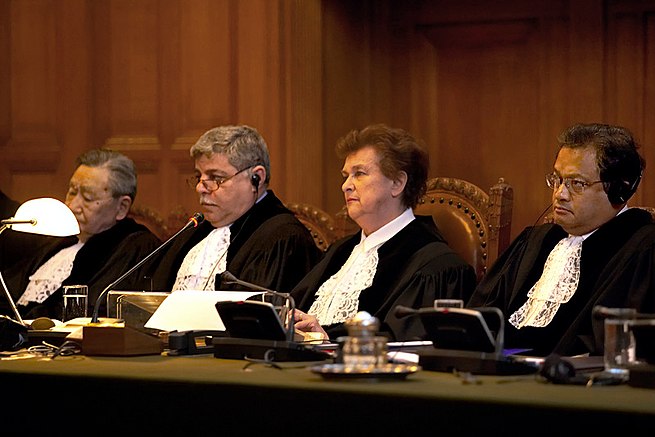Main Difference
The main difference between Judge and Barrister is that the Judge is a official who presides over court proceedings and Barrister is a lawyer specialized in court representation in Wales, England and some other jurisdictions.
-
Judge
A judge is a person who presides over court proceedings, either alone or as a part of a panel of judges. The powers, functions, method of appointment, discipline, and training of judges vary widely across different jurisdictions. The judge is supposed to conduct the trial impartially and, typically, in an open court. The judge hears all the witnesses and any other evidence presented by the barristers of the case, assesses the credibility and arguments of the parties, and then issues a ruling on the matter at hand based on his or her interpretation of the law and his or her own personal judgment. In some jurisdictions, the judge’s powers may be shared with a jury. In inquisitorial systems of criminal investigation, a judge might also be an examining magistrate.
-
Barrister
A barrister is a type of lawyer in common law jurisdictions. Barristers mostly specialise in courtroom advocacy and litigation. Their tasks include taking cases in superior courts and tribunals, drafting legal pleadings, researching the philosophy, hypothesis and history of law, and giving expert legal opinions. Often, barristers are also recognised as legal scholars.
Barristers are distinguished from solicitors, who have more direct access to clients, and may do transactional-type legal work. It is mainly barristers who are appointed as judges, and they are rarely hired by clients directly. In some legal systems, including those of Scotland, South Africa, Scandinavia, Pakistan, India, Bangladesh, and the British Crown dependencies of Jersey, Guernsey and the Isle of Man, the word barrister is also regarded as an honorific title.
In a few jurisdictions, barristers are usually forbidden from “conducting” litigation, and can only act on the instructions of a solicitor, who performs tasks such as corresponding with parties and the court, and drafting court documents. In England and Wales, barristers may seek authorisation from the Bar Standards Board to conduct litigation. This allows a barrister to practise in a ‘dual capacity’, fulfilling the role of both barrister and solicitor.In some countries with common law legal systems, such as New Zealand and some regions of Australia, lawyers are entitled to practise both as barristers and solicitors, but it remains a separate system of qualification to practise exclusively as a barrister.
-
Judge (noun)
A public official whose duty it is to administer the law, especially by presiding over trials and rendering judgments; a justice.
-
Judge (noun)
A person who decides the fate of someone or something that has been called into question.
-
Judge (noun)
A person officiating at a sports event or similar.
“At a boxing match, the decision of the judges is final.”
-
Judge (noun)
A person who evaluates something or forms an opinion.
“She is a good judge of wine.”
“They say he is a poor judge of character considering all the unreliable friends he has made.”
-
Judge (verb)
To sit in judgment on; to pass sentence on.
“A higher power will judge you after you are dead.”
-
Judge (verb)
To sit in judgment, to act as judge.
“Justices in this country judge without appeal.”
-
Judge (verb)
To form an opinion on.
“I judge a man’s character by the cut of his suit.”
-
Judge (verb)
To arbitrate; to pass opinion on something, especially to settle a dispute etc.
“We cannot both be right: you must judge between us.”
-
Judge (verb)
To have as an opinion; to consider, suppose.
“I judge it safe to leave the house once again.”
-
Judge (verb)
To form an opinion; to infer.
“I judge from the sky that it might rain later.”
-
Judge (verb)
To criticize or label another person or thing.
-
Barrister (noun)
A lawyer with the right to speak and argue as an advocate in higher lawcourts.
-
Barrister (noun)
a person called to the bar and entitled to practise as an advocate, particularly in the higher courts.

